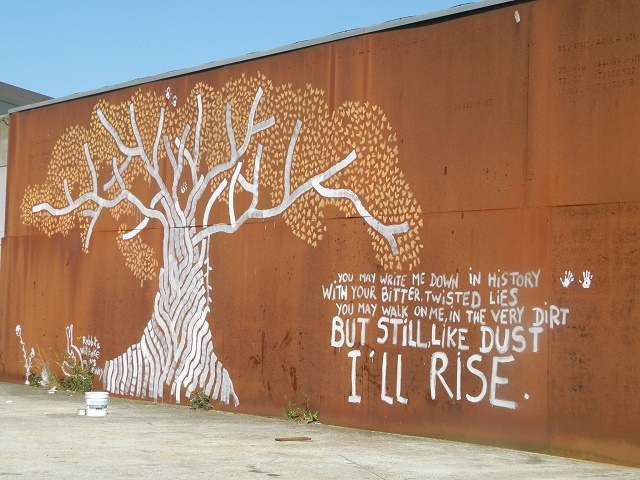France: Desperate migrants brace themselves for mass eviction from Calais squat Special Report
New in Ceasefire, Special Reports - Posted on Tuesday, August 12, 2014 21:32 - 0 Comments

10 Impasse Des Salines, Calais. An abandoned recycling factory on the edge of the centre of town. Here over 100 migrants sleep at night and a further 300 turn up during the day to use the basic facilities and to have access to what will be, for some, their only meal of the day. The squat was occupied two weeks ago, on the 12th of July, and as of time of publication (July 28), is facing eviction. A court order was served on Thursday requiring all the occupants to leave the 12,000 square metre location, which means the police can turn up at any point to evict them.
The establishment of the squat was in response to the earlier mass eviction, on 2 July, of four other squats including Salam, a food distribution point located near the port. In total, over 500 refugees were evicted from Salam and a further 70+ from the other three squats. The raid, carried out by the CRS riot police and PAF border police, rounded up over 300+ migrants who were then taken to detention centres in Coquelle, Lille and Amelot. Everything the migrants owned, including their ‘determination’ paperwork, was destroyed.
Organisations such as Medicins du Monde and Calais Ouverture et Humanite (COH) continually provide support in the form of showers, toilets and tents at not only this squat but at other camps the migrants have themselves built. Without that, the situation would be even worse; with migrants requiring medical aid and food daily.
An old house within the squat contains sleeping spaces, a kitchen and several toilets serve as a focal point for the remaining courtyards and three closed hangar spaces. Language classes, rights workshops and film screenings are organised to provide a level of education and to lighten the atmosphere. Artwork adorns the walls of the courtyards, each hand-drawn picture telling the story of a battle for freedom and for a better life, free from persecution.
The migrants – who’ve come here from Darfur to Jalalabad and everywhere in between – have continually faced oppression by the police, local fascist group ‘Sauvons Calais’ and mayor Natacha Bouchart herself. For most, getting to Calais was not easy. Everyone has a harrowing story to tell of danger, death and deportation. They risk their lives every day, attempting to make what is for some a fatal crossing to England where they hope to gain asylum, having all but been shunned by the French Government.
Most of the migrants are trapped in a paradox: they are required by the 2003 Dublin Regulation to claim asylum in the first country they enter, yet for most this is impossible. In order to claim asylum in the UK, they first have to enter the country which means crossing illegally, leaving them in a state of legal and emotional limbo.
Despite the turmoil in their countries of origin, some have been resigned to accept the voluntary deportation option offered by the French Government, while only few migrants being able to claim asylum in France. However, for the majority, these options do not exist or are not viable alternatives. Their future in Calais remains bleak.
The future of the squat remains a difficult issue with the situation changing daily. The migrants do not want to leave while no solution has been proposed, and no compromise has been sought. Support is needed, though. While their numbers remain large, the migrants need more support if the squat is to survive.
Things at least for now in Calais, are relatively calm. The prefecture and minicipale met last week and stated the eviction of the Impasse squat would not happen immediately. Whilst deputy mayor Mignonet said they would provide free travel for migrants. However, inevitably issues will arise in terms of putting free travel into practice and it could further provoke an already growing problem of violence and hostility.
Buchart, Calais’s mayor, remains determined to make the crisis Britain’s problem with repeated calls to move the border over to the UK. What remains unclear is the long term future for the migrants, with more arriving each day, the situation is reaching breaking point with organizations facing logistical problems and a lack of volunteers on the ground.
The squat is calling on people to mobilise in solidarity with their struggle, for people to come and participate and make it a place of creativity, solidarity and, above all, resistance.


Leave a Reply